Finding children’s books written by and featuring Native or Indigenous people is, unfortunately, very difficult. We’ve compiled this list to help you find First Nation stories that run the gamut from playful to legendary.
Cradle Me
Ages 0-3
An easy introduction to the deep traditions surrounding cradle boards, Cradle Me features pictures of real babies held in their tribe’s cradleboard style.
What we love: Each picture shows the traditional construction and decoration of a particular style of cradleboard, and the accompanying text encourages children to incorporate their own language into the reading process.
Things to know: While the last page mentions the varied and complex cradle board styles, it does not differentiate between tribes. We wish they had!
Sweetest Kulu
Ages 0-3
Sweetest Kulu draws on the Arctic landscape and native animals to show the Inuit values of respect and care for their surroundings.
What we love: The author is an Inuit throat singer and her words are wonderfully lyrical.
Things to know: “Kulu” is an Inuktitut term of endearment, making this book all the more lovable.

May We Have Enough to Share
Ages 0-3
This beautiful compilation of indigenous representation paired with lyrical text will have you tearing up and your little ones will love looking at so many baby faces!
What we love: A board book filled with indigenous family photos taken by indigenous womxn photographers? YES please! All these photos were sourced from the photo collective Tea & Bannock – check them out!
Things to know: We love how the #OwnVoices makers of this book carries over to even the detailed beaded art on each page. We swooned when we checked out all the beautiful Native-artist-made jewelry on Creations for Continuity.
At the Mountain’s Base
Ages 3-8
A beauitfully simple story, At the Mountain’s Base, features a Native family patiently waiting for their beloved female family member to return home from active military duty.
What we love: Quite literally interweaving Cherokee culture AND the life of a woman veteran, At the Mountain’s Base is one-of-a-kind!
Things to know: This book is so intersectional, especially after reading the author’s note at the back explaining her real-life inspiration for the story.
We Are Grateful: Otsaliheliga
Ages 3-7
Follow the seasons with the Cherokee community as they show gratitude for everything and everyone around them.
What we love: We Are Grateful is the perfect book for breaking down the myth of the ‘First Thanksgiving’ as indigenous communities have practiced many formal and informal thanks-giving traditions for centuries.
Things to know: Pronouncing words in a brand new languages is great for stretching your brain, how cool that you and your little feminists can learn together! 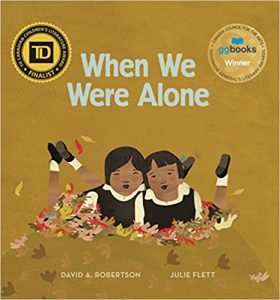
When We Were Alone
Ages 4-7
As a little girl asks seemingly innocuous questions to her grandmother, the answers all lead back to an experience in her grandmother’s youth. What is slowly revealed is a tale of strength in the face of oppression, and a message about finding yourself when other people try to define who you are.
What we love: The story shows how the grandmother preserved her sense of self in the face of government-sanctioned cultural destruction.
Things to know: Residential schools for indigenous children were set up across Canada. They were administered by Christian churches and funded by the national government. Their stated purpose was to assist in the assimilation of these children into Euro-Canadian culture, but in reality, these schools attempted to erase the students’ native cultures and ended up causing deep generational trauma to many children.
Since this book is for younger readers, it does not delve into the more physical and emotional trauma that went on within the residential schools. See I Am Not A Number for a more descriptive book.
Hiawatha and the Peacemaker
Ages 5-8
Hiawatha and the Peacemaker is based on the true story of Hiawatha, the notable spokesperson for the Peacemaker who is famous for establishing the Iroquois Confederacy. Together they journey to bring peace to the warring nations of the Haudenosaunee (now known as the Iroquois).
What we love: Readers see Hiawatha, a man of color, express anger, sadness, hope, love, and forgiveness. There are also strong women characters, known as the Clan Mothers, in the story.
Things to know: We found it frustrating was that the antagonist’s bad intentions were described in connection to his physical deformity. Keep this in mind as you read this story with your kids. Many superhero movies link disability to an evil nature (e.g., Captain Hook, Darth Vader, Doctor Poison from Wonder Woman, etc.) and it is important to explain the inherent prejudice in these depictions of disability.
Skysisters
Ages 4-8
After their nightly hot cocoa, two sisters set off to see their Skysisters. While the younger sister struggles to stay quiet, irritating her older sister, together they share in the joy of reaching their destination.
What we love: While not explicitly stated in the book, the sisters are Ojibway, and we love how the values of the Ojibway people take center statge in this story.
Things to know: The pronunciation guide is in the front of the book, hidden under the dedications.
Go Show the World: A Celebration of Indigenous Heroes
Ages 5-9
Author (and muscian) Wab Kinew has created a rap celebrating the story of Indigenous people throughout time.
What we love: Lyrical text with poignant illustrations, Go Show the World belongs in every school library to remind people that Indigenous communities and cultures are still here.
Things to know: Thank goodness the back of the book contains biographical descriptions for every person featured in the book because we knew very little about the famous folx featured!
Giving Thanks: A Native American Good Morning Message
Ages: 5-11
Giving Thanks is a presentation of the Thanksgiving Address, a message of gratitude that originated with the Native people of upstate New York and Canada and that is still spoken at ceremonial gatherings held by the Iroquois, or Six Nations.
What we love: This book showcases an everyday gratitude practice, rather than a once-a-year holiday.
Things to know: HUGE shout out to Mari, a Six Nations member, who urged us to include a title dismanteling Thanksgiving as we know it. It takes a village!
—
Want more? Sign up for the Little Feminist Book Club. We send our favorite books to our members every month!
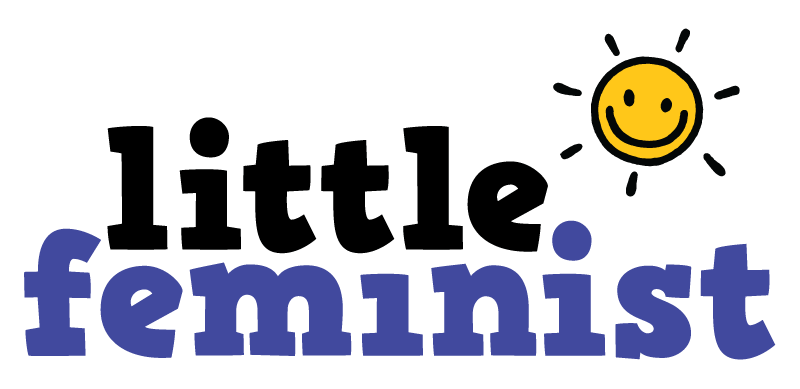

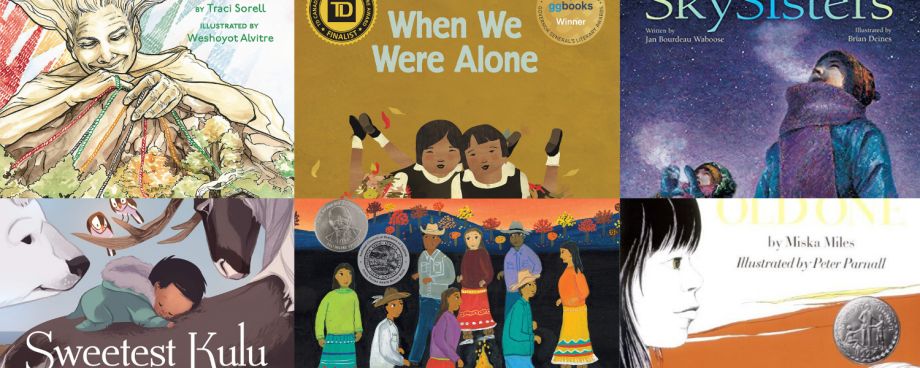
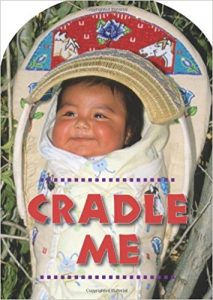
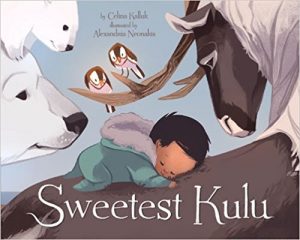
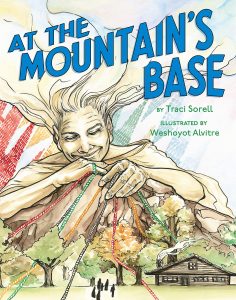
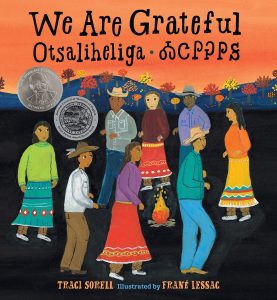
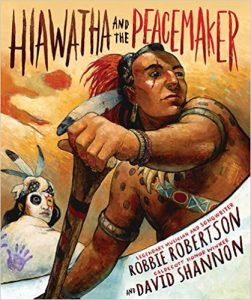
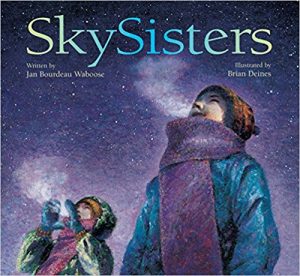
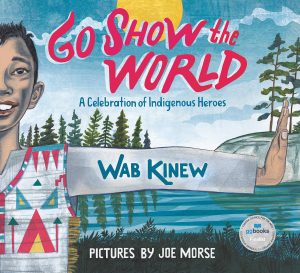
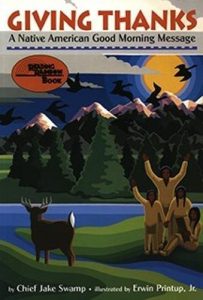
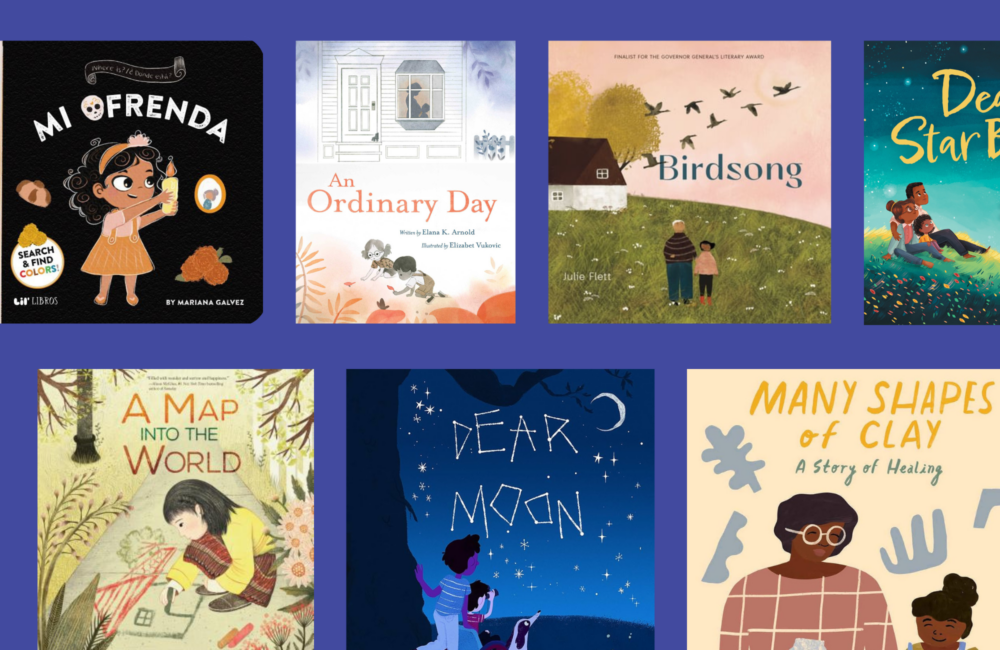
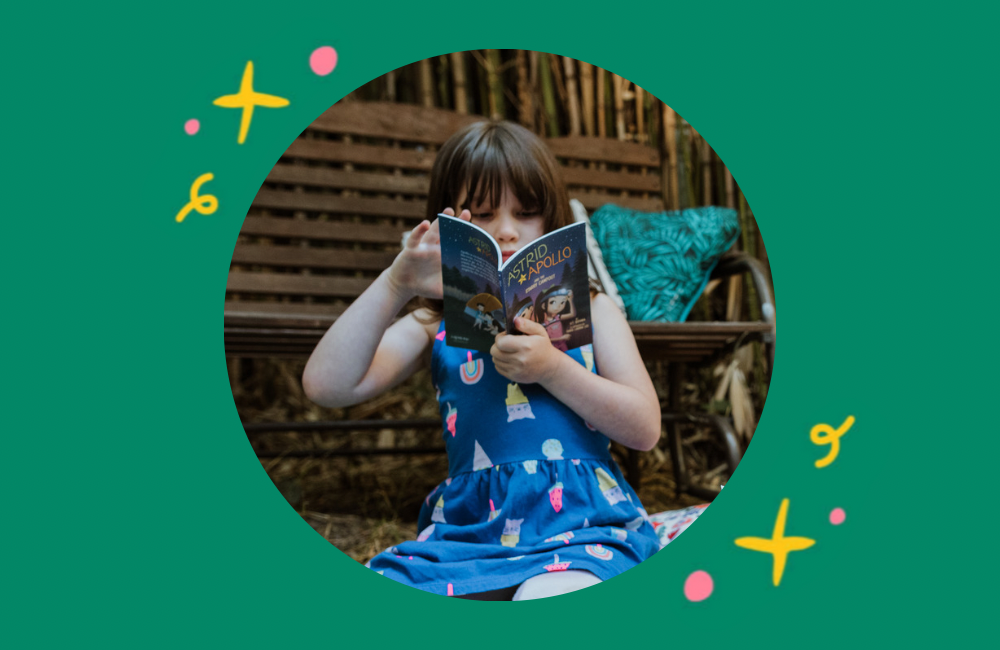
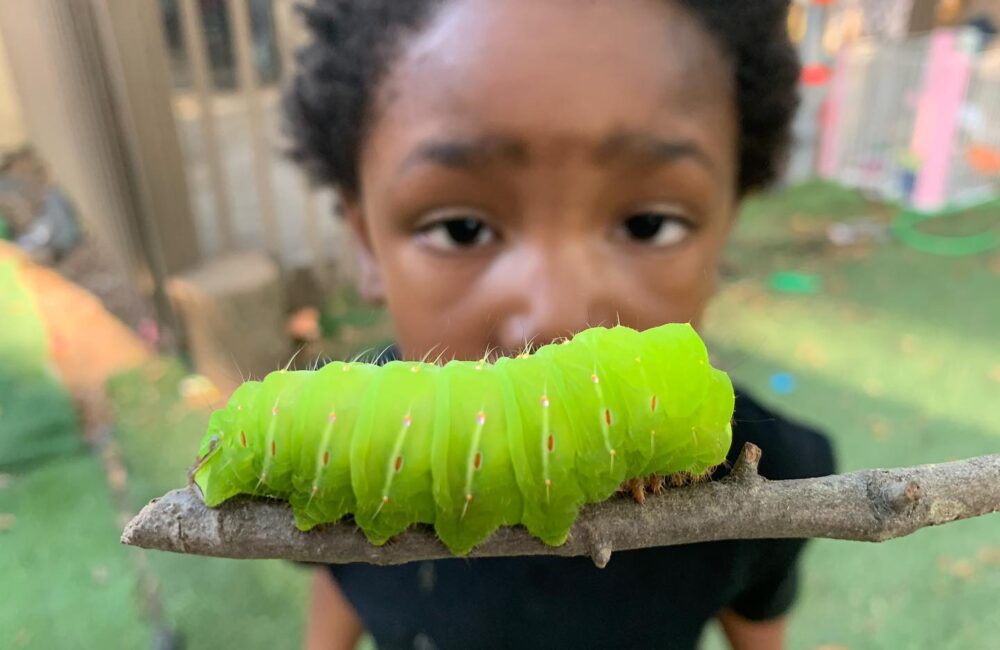
 in Oakland, CA
in Oakland, CA